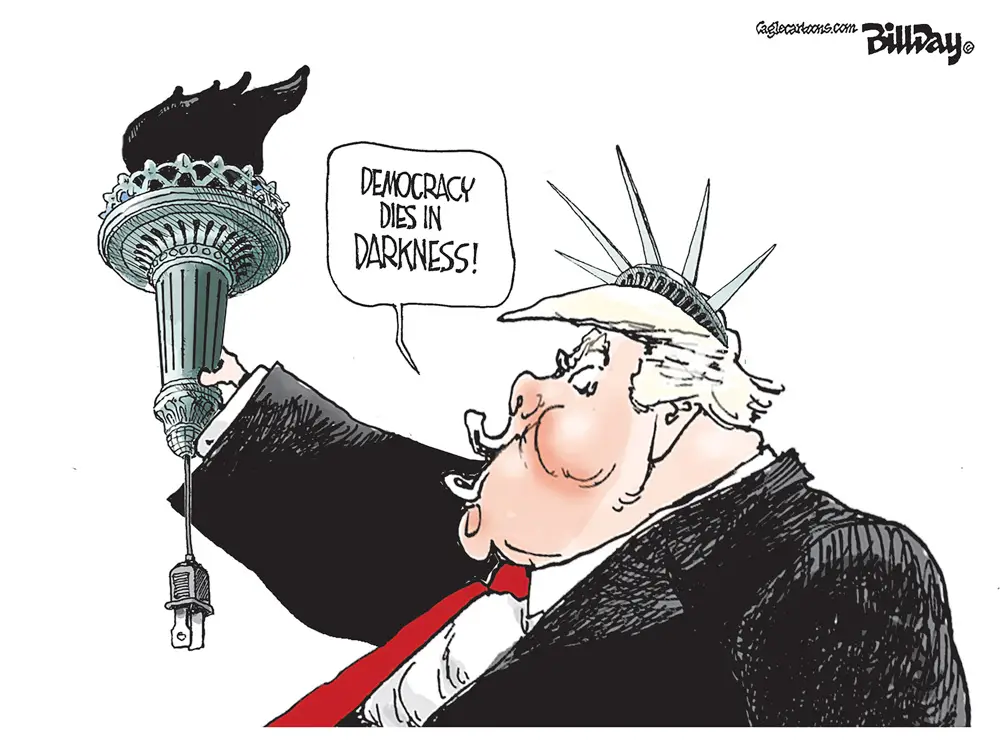
To include your event in the Briefing and Live Calendar, please fill out this form.
Weather: Mostly cloudy. A slight chance of showers in the morning. Highs in the upper 70s. West winds 5 to 10 mph. Chance of rain 20 percent. Monday Night: Mostly cloudy. Cooler. Less humid with lows in the lower 50s. Northwest winds 5 to 10 mph. See the daily weather briefing from the National Weather Service in Jacksonville here.
Today at a Glance:
In Court: A wrongful-death civil trial pitting representatives of the estate of Richard Starr against AdventHealth Palm Coast enters its second week. Circuit Judge Chris France is presiding over the trial. Starr was 38 when he died of a cardiac episode in March 2018.
The Flagler County Commission meets at 9 a.m. at the Government Services Building, 1769 E. Moody Boulevard, Building 2, Bunnell. Access meeting agendas and materials here. The five county commissioners and their email addresses are listed here. Meetings stream live on the Flagler County YouTube page.
The Beverly Beach Town Commission meets at 6 p.m. at the meeting hall building behind the Town Hall, 2735 North Oceanshore Boulevard (State Road A1A) in Beverly Beach. See meeting announcements here.
Rotary’s Fantasy Lights Festival in Palm Coast’s Town Center: Nightly from 6 to 9 p.m. at Palm Coast’s Central Park, with 55 lighted displays you can enjoy with a leisurely stroll around the pond in the park. Admission to Fantasy Lights is free, but donations to support Rotary’s service work are gladly accepted. Holiday music will pipe through the speaker system throughout the park, Santa’s Village, which has several elf houses for the kids to explore, will be open, with Santa’s Merry Train Ride nightly (weather permitting), and Santa will be there every Sunday night until Christmas, plus snow on weekends! On certain nights, live musical performances will be held on the stage.
Nar-Anon Family Groups offers hope and help for families and friends of addicts through a 12-step program, 6 p.m. at St. Mark by the Sea Lutheran Church, 303 Palm Coast Pkwy NE, Palm Coast, Fellowship Hall Entrance. See the website, www.nar-anon.org, or call (800) 477-6291. Find virtual meetings here.
In Coming Days:
Dec. 23: Culmination of toy drive for Toys for Tots at AW Custom Kitchens, European Village, starting at 11 a.m. A drawing for all eligible participants will take place at 2 p.m. Anyone who will have donated toys for the drive will have a chance to win various items, including a 65-inch 4K Smart TV, an Apple iPad, a pair of Apple Air Pods, and gift cards from the co-sponsors of the event. Fifty such cards have been donated. With proof of a voucher, donors also will receive a free hot dog, a free drink, a free popcorn, a free cotton candy, and a free snow cone. There will be a variety of fun things to do such as a bouncy house for children in thanks to the community for its generosity. See details here.
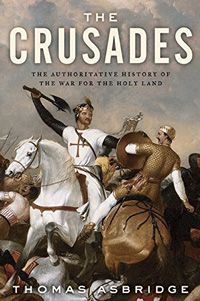 Book Notes: At the beginning of The Crusades, his 2010 book, Thomas Asbridge, like most modern scholars writing on the subject, goes out of his way to stress that the stereotypes of the crusaders as cynical, power-hungry fanatics is wrong. “Even in the modern era,” he writes in the book’s first footnote, “many histories of the crusades written by ‘western’ scholars have been coloured (consciously or unconsciously) by a degree of bias, because most present this era from a Christian standpoint.” He then, in the first two pages alone, goes on to show orientalist bias: “In the course of these monumental expeditions, hundreds of thousands of crusaders travelled across the face of the known world to conquer and then defend an isolated swathe of territory centered on the hallowed city of Jerusalem.” But European crusaders traveled only from what we know today as Western Europe, through Eastern Europe and Asia Minor (until the Christian-on-Christian Fourth Crusade, after which it was all by sea), to the few objectives of the Levantine littoral. Even then, the “known world” was much more vast, the swathes of Europe and slivers of the Levant accounting for maybe a tenth of that. Asbridge begins with an orientalist assumption, reducing everything to a western perspective–the same perspective that would give rise to that enduring misnomer, the Middle East. Middle to whom, if not to lint-infested navels of imperious Europeans? That was just the first paragraph of the 767-page book (681 without the end notes). He starts the second with this line: “The advent of these crusades stirred Islam to action, reawakening dedication to the cause of jihad (holy war).” The line is so full of ironies. Sigh. First, the jihad stereotype endures to this day as exclusively that of the crazed Arab or Islamist with a sword in one hand and the Koran in the other (a stereotype so ingrained in western literature that historians for centuries portrayed Arab conquerors of the first Islamic century that way, even though there was no such thing as a Koran until well into the second century of Islam’s history, anymore than there was an Iliad or an Odyssey as we know them today until long past Homer’s death, if indeed Homer existed as a single bard). Second, if we are to refer to jihad, we should at least define it in its basic form so as to at least try not to perpetuate the stereotype like Fox News’s fanatics do. The word is Arabic for struggle or struggling. To put it simply, there are two forms of Jihad, the “greater” and “lesser” jihad. The greater jihad refers to the inner struggle, what we might think of as our own personal, spiritual struggle to grow and reach for the idea, an idea as common to Plato as it is to Deepak Chopra by way of Augustine, Mohammed and any run-of-the-mill Christian liturgy, whether Catholic or Protestant. In other words, we are all jihadists. The word’s appearances in the Koran refer mostly to the greater jihad, and of course in far more complicated and enriching ways that a lapsed Catholic can convey here. None of those richer interpretations of the word resonate with anyone who hears it these days, because it has been reduced to the simpler, more militaristic “lesser” jihad, the external jihad, the armed struggle, the conquest. In Islam, the greater jihad matters most. To the Fox-orientalist west, the lesser jihad is all there is. As we can see from Asbridge, a historian at the University of London you’d assume would know better, that’s the only jihad he cares to refer to in his second paragraph. But we don’t get a full measure of the irony until we realize that his book is about Christendom’s jihad, for there is nothing to distinguish Islam’s version from Christendom’s for those two miserable centuries (or since: Christianity has been one long miserable jihad that has yet to end). So that’s in the first two paragraphs of his Crusades. A little further on, after Asbridge told us not to assume all these Christian Holy warriors were fanatics, he describes the life of the despicable and bloodthirsty Fulk Nerra, “a brutal and rapacious warlord” who reigned for 53 years in Anjou, France, plundering, raping, murdering, and burning his wife at the stake for adultery, before decicing in his old age to turn Roger Dimmsale, head for Jerusalem in a pilgrimage, and demanded to be “led naked to the Holy Sepulchre–the site of Jesus’ death and resurrection” [a resurrection referred to by this historian as fact] “with a leash around his neck, being beaten by his servant while he begged Christ for forgiveness.” Asbridge describes Fulk Nerra’s pilgrimage as “unbridled sadism and outlandish acts of devotion.” Then he writes that “his experience and mindset were reflective of the forces that shaped the Middle Ages and gave birth to the crusades. And it would be people like Fulk–including many of his own descendants–who stood in the front line of these holy wars.” The emphasis is mine. So how could Asbridge (or any scholar echoing him) still make the claim that the crusaders were not essentially fanatics drunk on bridles of power, cynicism, imperiousness and self-delusions? We’re on page 5 now. Did I mention there are 681 pages? I won’t get started on his use of the word spiritual where he more accurately should have said superstitious, in his description of late-Middle Age Christianity. The last thing these barbarians who would soon cut the throat of every Albigensian among them, not to mention the throats of Jews they met on their way to Jerusalem in the First crusade and every Muslim throat they encountered once they took Jerusalem, was spiritual. But orientalism lives on.
Book Notes: At the beginning of The Crusades, his 2010 book, Thomas Asbridge, like most modern scholars writing on the subject, goes out of his way to stress that the stereotypes of the crusaders as cynical, power-hungry fanatics is wrong. “Even in the modern era,” he writes in the book’s first footnote, “many histories of the crusades written by ‘western’ scholars have been coloured (consciously or unconsciously) by a degree of bias, because most present this era from a Christian standpoint.” He then, in the first two pages alone, goes on to show orientalist bias: “In the course of these monumental expeditions, hundreds of thousands of crusaders travelled across the face of the known world to conquer and then defend an isolated swathe of territory centered on the hallowed city of Jerusalem.” But European crusaders traveled only from what we know today as Western Europe, through Eastern Europe and Asia Minor (until the Christian-on-Christian Fourth Crusade, after which it was all by sea), to the few objectives of the Levantine littoral. Even then, the “known world” was much more vast, the swathes of Europe and slivers of the Levant accounting for maybe a tenth of that. Asbridge begins with an orientalist assumption, reducing everything to a western perspective–the same perspective that would give rise to that enduring misnomer, the Middle East. Middle to whom, if not to lint-infested navels of imperious Europeans? That was just the first paragraph of the 767-page book (681 without the end notes). He starts the second with this line: “The advent of these crusades stirred Islam to action, reawakening dedication to the cause of jihad (holy war).” The line is so full of ironies. Sigh. First, the jihad stereotype endures to this day as exclusively that of the crazed Arab or Islamist with a sword in one hand and the Koran in the other (a stereotype so ingrained in western literature that historians for centuries portrayed Arab conquerors of the first Islamic century that way, even though there was no such thing as a Koran until well into the second century of Islam’s history, anymore than there was an Iliad or an Odyssey as we know them today until long past Homer’s death, if indeed Homer existed as a single bard). Second, if we are to refer to jihad, we should at least define it in its basic form so as to at least try not to perpetuate the stereotype like Fox News’s fanatics do. The word is Arabic for struggle or struggling. To put it simply, there are two forms of Jihad, the “greater” and “lesser” jihad. The greater jihad refers to the inner struggle, what we might think of as our own personal, spiritual struggle to grow and reach for the idea, an idea as common to Plato as it is to Deepak Chopra by way of Augustine, Mohammed and any run-of-the-mill Christian liturgy, whether Catholic or Protestant. In other words, we are all jihadists. The word’s appearances in the Koran refer mostly to the greater jihad, and of course in far more complicated and enriching ways that a lapsed Catholic can convey here. None of those richer interpretations of the word resonate with anyone who hears it these days, because it has been reduced to the simpler, more militaristic “lesser” jihad, the external jihad, the armed struggle, the conquest. In Islam, the greater jihad matters most. To the Fox-orientalist west, the lesser jihad is all there is. As we can see from Asbridge, a historian at the University of London you’d assume would know better, that’s the only jihad he cares to refer to in his second paragraph. But we don’t get a full measure of the irony until we realize that his book is about Christendom’s jihad, for there is nothing to distinguish Islam’s version from Christendom’s for those two miserable centuries (or since: Christianity has been one long miserable jihad that has yet to end). So that’s in the first two paragraphs of his Crusades. A little further on, after Asbridge told us not to assume all these Christian Holy warriors were fanatics, he describes the life of the despicable and bloodthirsty Fulk Nerra, “a brutal and rapacious warlord” who reigned for 53 years in Anjou, France, plundering, raping, murdering, and burning his wife at the stake for adultery, before decicing in his old age to turn Roger Dimmsale, head for Jerusalem in a pilgrimage, and demanded to be “led naked to the Holy Sepulchre–the site of Jesus’ death and resurrection” [a resurrection referred to by this historian as fact] “with a leash around his neck, being beaten by his servant while he begged Christ for forgiveness.” Asbridge describes Fulk Nerra’s pilgrimage as “unbridled sadism and outlandish acts of devotion.” Then he writes that “his experience and mindset were reflective of the forces that shaped the Middle Ages and gave birth to the crusades. And it would be people like Fulk–including many of his own descendants–who stood in the front line of these holy wars.” The emphasis is mine. So how could Asbridge (or any scholar echoing him) still make the claim that the crusaders were not essentially fanatics drunk on bridles of power, cynicism, imperiousness and self-delusions? We’re on page 5 now. Did I mention there are 681 pages? I won’t get started on his use of the word spiritual where he more accurately should have said superstitious, in his description of late-Middle Age Christianity. The last thing these barbarians who would soon cut the throat of every Albigensian among them, not to mention the throats of Jews they met on their way to Jerusalem in the First crusade and every Muslim throat they encountered once they took Jerusalem, was spiritual. But orientalism lives on.
—P.T.
View this profile on Instagram
![]()
The Live Calendar is a compendium of local and regional political, civic and cultural events. You can input your own calendar events directly onto the site as you wish them to appear (pending approval of course). To include your event in the Live Calendar, please fill out this form.
January 2026
Flagler Beach United Methodist Church Food Pantry
Flagler County Drug Court Convenes
Model Yacht Club Races at the Pond in Palm Coast’s Town Center
Palm Coast Democratic Club Meeting
Flagler Beach City Commission Meeting
Evenings at Whitney Lecture Series
Free For All Fridays With Host David Ayres on WNZF
Friday Blue Forum
‘Lady Day at Emerson’s Bar and Grill,’ the Billie Holiday Story, at City Rep Theatre
For the full calendar, go here.
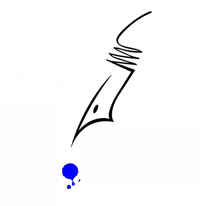
Of these votaries, the most numerous and respectable portion were strangers to Jerusalem: the pilgrimages to the Holy Land had been stimulated, rather than suppressed, by the conquest of the Arabs; and the enthusiasm which had always prompted these perilous journeys, was nourished by the congenial passions of grief and indignation. A crowd of pilgrims from the East and West continued to visit the holy sepulchre, and the adjacent sanctuaries, more especially at the festival of Easter; and the Greeks and Latins, the Nestorians and Jacobites, the Copts and Abyssinians, the Armenians and Georgians, maintained the chapels, the clergy, and the poor of their respective communions. The harmony of prayer in so many various tongues, the worship of so many nations in the common temple of their religion, might have afforded a spectacle of edification and peace; but the zeal of the Christian sects was imbittered by hatred and revenge; and in the kingdom of a suffering Messiah, who had pardoned his enemies, they aspired to command and persecute their spiritual brethren.”
–From Edward Gibbon’s The Decline and Fall of the Roman Empire (1776).









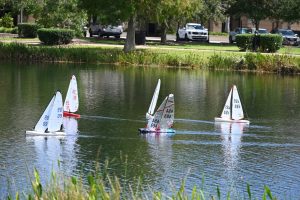

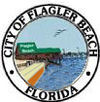

























Pogo says
@P.T.
FWIW, and to whom it may concern:
As stated
https://www.google.com/search?q=orientalism